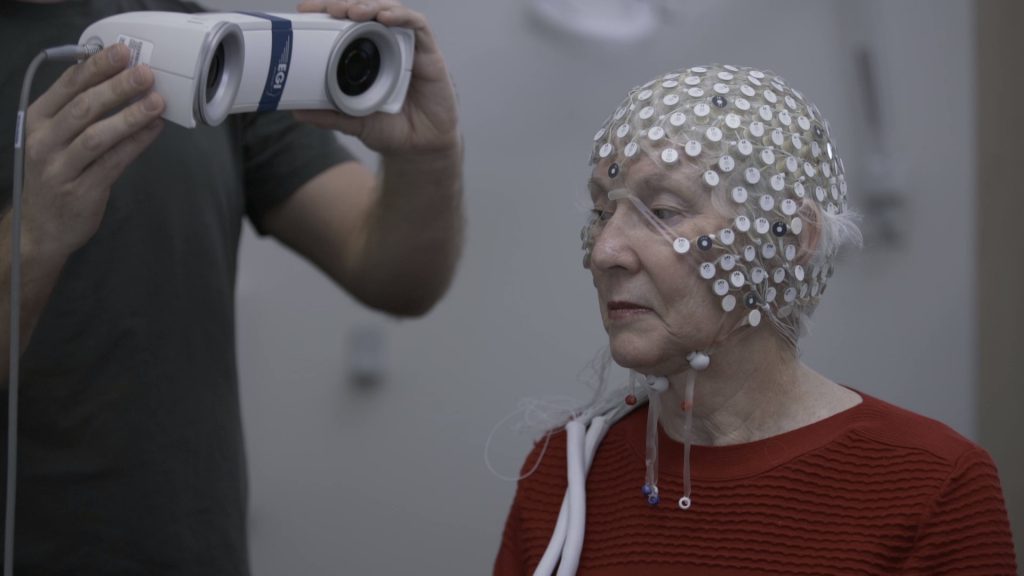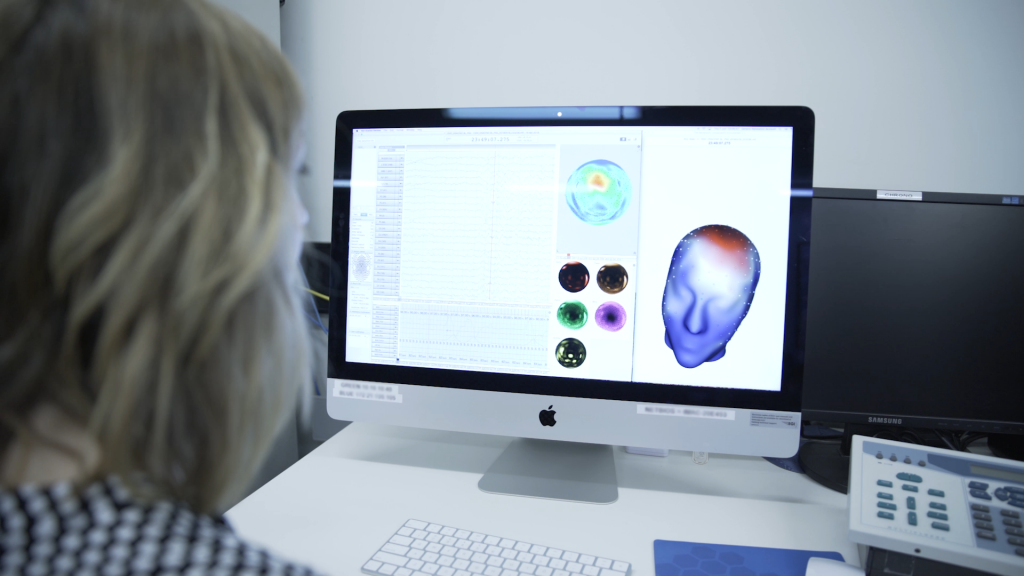What do sleep and breathing issues do to the brain?

In the future, people living in the ‘blue zones of the world’ such as Okinawa in Japan and Icaria in Greece, will not be the only ones living longer. Research estimates that 50% of babies born in 2022 will live to be 100. As dementia is the second leading cause of disease in Australia, preventing brain degeneration is critical to the future health of Australia’s population. It is also important to reducing the associated load on health and hospital services. NSW Health is responding to this research priority. Infrastructure funding made available via the Medical Research Support Program, has assisted the Centre for Chronic Diseases of Ageing at the Woolcock Institute of Medical Research to undertake a study investigating the impact of sleep disturbance and respiratory disease on cognitive function (such as thinking and memory). Called the Oracle Study, the research is shedding light on links to cognitive health and decline. The Woolcock’s Centre for Chronic Disease of Ageing is also investigating potential therapies to delay and protect against adverse impacts of sleeping issues and lung conditions on brain health.

Catching signs of dementia earlier
“The Oracle Study has been running since December 2023 and investigates the early markers of cognitive impairment and dementia risk in people with chronic diseases of ageing,” says Dr Angela D’Rozario, from the Woolcock Institute of Medical Research where she is both Research Leader for the Sleep Neurobiology, Sleep and Circadian Research Group and Director of the Centre for Chronic Diseases of Ageing. “The aim of the project is to create a rich data-set to examine how chronic sleep and respiratory disorders contribute to brain ageing. The research team hopes to identify early biomarkers of dementia risk and cognitive impairment to ensure faster detection and treatment. They are investigating and trialling treatments and other approaches to help delay and possibly even contribute to reversal of, this ageing process.” As the premier sleep and respiratory research site in Australia, the Woolcock Institute of Medical Research has been well placed to conduct this important research. To engage in this work they have established a collaborative team of researchers and clinicians from respiratory, neurology, sleep, basic science, and neuroscience backgrounds.
Looking for cognition clues
Studies show that good quality sleep is vital to maintaining brain health as people age. It may also help provide protection against neurodegenerative diseases (conditions that affect brain health) such as dementia. Evidence shows that some lung conditions can also accelerate cognitive decline. So for the Oracle Study, a specialised research clinic was established to comprehensively assess sleep, respiratory function, cognition, and brain health measures in patients.
“Older adults with chronic sleep and respiratory disease are being studied,” D’Rozario explains. “Four different participant groups attend the specialised research clinic. Clinicians assess patients with sleep-related breathing disorders including Obstructive Sleep Apnoea (OSA), which is a condition that is more common as people age, causes pauses in breathing during sleep and affects 10-20% of adult Australians. The Oracle Study also includes patients with COPD (Chronic Obstructive Pulmonary Disease), a lung disease that involves chronic inflammation and restricts airflow from the lungs.”
According to the World Health Organisation, Chronic Obstructive Pulmonary Disease is the third leading cause of death worldwide. In Australia, around one in 7 people over the age of 40 have the illness. Risk factors for COPD include smoking, breathing in second-hand smoke or household air pollution, exposure to outdoor pollution (also called ambient particulate matter – such as ozone – which contributes to smog) and exposure to occupational pollution through inhaled particles such as coal dust. The third group of patients included in the study have ‘overlap syndrome’ – which means they have both OSA and COPD,” says D’Rozario. The fourth group are a control group who do not have either condition, so that they can be used as a comparison.” In addition, the research is also exploring the impact of smoking versus COPD in reduced cognitive function.

Exploring new tests and markers
“One major aim of the Oracle Study is to develop a new testing method to fast-track earlier recognition of cognitive impairment in people with sleep disorders or COPD,” D’Rozario explains. “Another objective is to identify new biomarkers (signs) of brain ageing in individuals with sleep disorders or COPD. Building on this knowledge, the team is working on developing a model to test new interventions for cognitive decline at a very early stage in brain disease or brain function decline.”
To identify these biomarkers, a combination of both established and more cutting-edge techniques are being used. These include high-density electroencephalography (HdEEG), where a cap with 256 interconnected electrodes is worn by a patient to record electrical brain activity and create a map showing their brain function during sleep. This approach gives more detailed brain information than a standard EEG. Near infrared spectroscopy (fNIRS) assessments are measuring the brain’s vascular (blood vessel) response to hypoxemia (low levels of oxygen in the blood) and brain tissue hypoxia (low levels of oxygen in the tissues). These measurements are taken when a participant is completing cognitive tasks, awake but in a resting state and also when they are asleep. In addition, a method called pupillometry is being used to measure pupil diameter changes at rest and during rapid responses. Pupil size is linked to activity in the locus coeruleus, which is a small but powerful area in the brainstem involved in sleep-wake regulation and brain degeneration. Magnetic Resonance Imaging (MRI) scans are also being conducted to capture detailed 3D brain images. These scans show the anatomy of brain structures and can also provide information about unhealthy functional brain changes. “The Woolcock’s Centre for Chronic Disease of Ageing is using this arsenal of innovative research tools to discover the brain mechanisms that underlie accelerated brain ageing and the potential for reversal or limitation in our clinical populations,” says D’Rozario. “These tools are also being used to test new techniques to diagnose early signs of disease and limit the impact.”

Trialling different brain-protective treatments
This research is investigating new and established pharmacological agents for the treatment of sleep disturbance and early-stage cognitive decline in older adults with sleep and respiratory disease. These include innovative trials of melatonin (a hormone that is essential to sleep) and newer medications to treat insomnia, (called DORA’s or dual orexin receptor antagonists) These drugs will both be studied to track if they help protect brain function. “The team’s researchers are exploring innovative approaches for delivering neuroprotective drug formulations via intranasal delivery – which means that patients inhale the drug through their nose, bypassing the blood brain barrier and reaching the brain more effectively,” D’Rozario points out. “A randomized controlled trial is also testing the effectiveness of non-invasive brain stimulation using state of the art high-definition neuromodulation. This non-invasive approach boosts the brain waves during sleep that play a functional role in consolidating our memories and flushing away dementia-causing toxins from the brain. They do this via the recently identified glymphatic system, which acts like the brain’s housekeeper.”
Positive pressure airway (PAP) therapy, which involves the use of a special machine to help improve breathing during sleep, will also be investigated during a trial in the treatment of patients with overlap syndrome (COPD and sleep apnoea). The work will explore the effects of PAP treatment on cognitive function and blood-based biomarkers of dementia in collaboration with clinician researchers at Guys’ and St. Thomas’ Hospital London, UK.
“By establishing research clinics, developing testing methods, and identifying biomarkers, the ground-breaking research undertaken by the Woolcock’s Centre for Chronic Diseases of Ageing will help pave the way for effective interventions, limiting the burden of cognitive decline on the health system,” D’Rozario explains. This means that while enjoying greater longevity, the brain health of ageing Australians will also be maximised to protect the ability to think, remember, problem solve and enjoy everything from crosswords and cribbage to conversation.
Updated 1 year ago